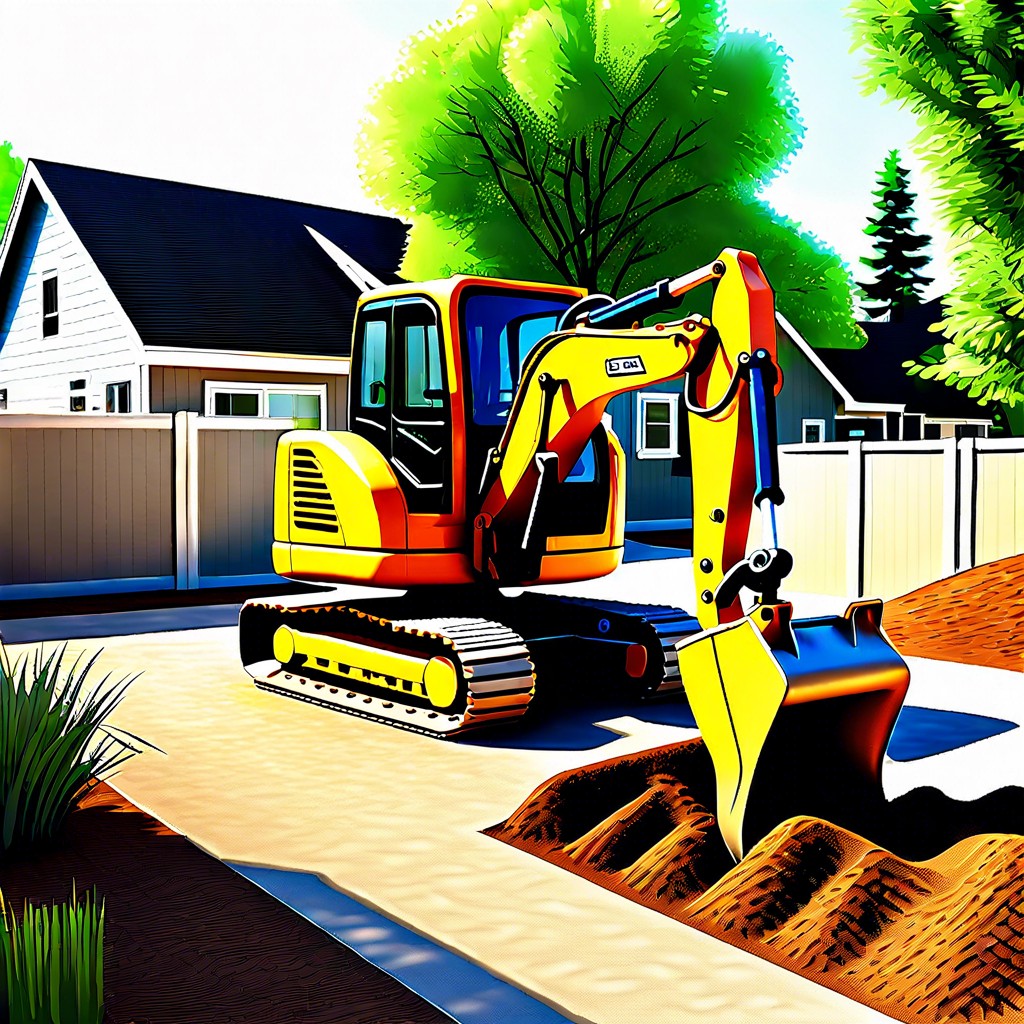Last updated on
Connecting an accessory dwelling unit (ADU) to a sewer system involves various factors; this article breaks down the potential costs you may encounter.
Key takeaways:
- Sewer hookup fees vary greatly and can be a significant expense.
- Distance and slope impact the cost of sewer line installation.
- Select the right materials and sizes for ADU sewer lines.
- A sewage ejection pump may be necessary for uphill plumbing.
- Comparing quotes and choosing a reputable contractor is crucial.
Estimated Costs for Sewer Hookup Fees

Sewer hookup fees can be a financial curveball if you’re not prepared. Picture this: they’re like the cover charge at an exclusive club, granting your ADU access to the municipal sewer system. The price tag for entrance? It varies widely. Location is king, with fees swinging dramatically from a modest few thousand dollars in some areas to a hefty $20,000 or more in others.
The rationale behind the fees? They recover the costs for city infrastructure and maintenance. Ensuring the sewer system can handle additional flow from your ADU is critical to prevent backups and overflows – nobody wants an unwelcome pool of trouble.
Remember, the bill includes more than just the connection. It’s the permit to dance, too, covering inspections and administrative work. Make it a point to check with local authorities — they hold the key to current fee structures and any potential financial assistance programs for property owners adding ADUs.
In short, while the sticker shock can be real, these fees are the ticket to reliable waste management and the peace of mind that comes with it. Keep a sharp eye on local regulations and budget accordingly; forewarned is forearmed.
Distance and Slope: Factors Affecting Sewer Line Installation
The lay of the land plays a pivotal role in the installation of sewer lines for your ADU. The further your unit stands from the main sewer line, the higher the cost could climb. It’s not just about digging a longer trench – think about these points:
– **Getting the angle right**: Sewage relies on gravity to flow. Thus, the pipe must be angled precisely for efficient waste transport. If your land isn’t cooperating, achieving this might require extra work.
– **Going uphill**: Need to pump sewage uphill? This demands an extra system called a sewage ejection pump, adding complexity and cost.
– **Digging deep**: Deeper trenches boost installation costs. Safety measures and additional labor for excavation can really add up.
– **Obstacles in path**: The presence of underground utilities, rocks, or roots could mean detours or added excavation effort, upping the price tag.
Remember, these factors can significantly influence the project’s budget, planning is essential. Chat with a pro for a clear picture of your ADU’s specific requirements.
Pipe Materials and Sizes: Selecting the Right Options for ADU Sewer Lines
Selecting the proper materials and sizes for your ADU’s sewer lines is like choosing the right-sized water hose for your garden: it’s got to be tough enough to handle the pressure and wide enough to ensure a good flow. Typically, these pipes are made of PVC or ABS, materials known for their longevity and resistance to corrosion. For residential properties, including ADUs, a 4-inch diameter pipe is often sufficient for effective sewage transport, balancing cost with performance.
The decision between PVC and ABS ultimately comes down to local building codes and personal preferences. PVC is widely appreciated for its affordability and ease of installation. On the flip side, ABS really shines with its ability to stand firm in colder temperatures and resist impact, making it the go-to choice for chillier climates.
Remember, cheap can be expensive in the long run. Investing in quality pipes early on can save you a bundle down the road in maintenance and repair costs. So, play it smart and go for the material that promises to stand the test of time in your specific environmental conditions.
Installation of a Sewage Ejection Pump: When and Why It’s Necessary
Sometimes, gravity isn’t on our side. If your ADU is below the level of the main sewer line, a sewage ejection pump is your go-to pal. This pump provides the boost your wastewater needs to reach the main sewer system against gravity’s wishes.
Think of it like a mini elevator for your waste – only not one you’d want to ride in. Jokes aside, it’s crucial for preventing backflow when your ADU’s plumbing is basement-level or situated on a slope. No one wants an accidental indoor pool of the wrong variety!
Installation is a bit more complex than a simple sewer line extension. You’ll need a basin placed below ground level, where the pump will live, along with proper venting to keep things flowing smoothly and odor-free.
The pump’s price tag can vary. But don’t let sticker shock make you hesitate; it’s an investment in both functionality and hygiene. After all, a well-worked wastewater system is something you’ll always want to bet on!
Comparing Quotes: Selecting a Contractor for Sewer Connection
Choosing the right contractor for your ADU sewer connection can make a significant difference in both cost and quality of workmanship. Start by gathering multiple quotes to compare. Look beyond the price tag; consider each contractor’s experience with ADUs, their reputation, and the clarity of their cost breakdown. A lower bid might not include all necessary services which could lead to additional out-of-pocket expenses down the line.
Ask for and check references. Past customers can provide real insight into a contractor’s reliability and attention to detail. A reputable contractor should also willingly offer a detailed contract that specifies the scope of the job, the materials to be used, a timeline, and payment schedule. This document protects both you and the contractor, framing expectations and providing recourse if anything doesn’t go as planned.
Lastly, don’t forget to verify licenses and insurance. A contractor operating without these essentials is a red flag and could leave you liable for any accidents or damages that occur during the project. Remember, a quality sewer connection is an investment in your ADU’s functionality, so choose your contractor with care.
Related reading:
Table of Contents





